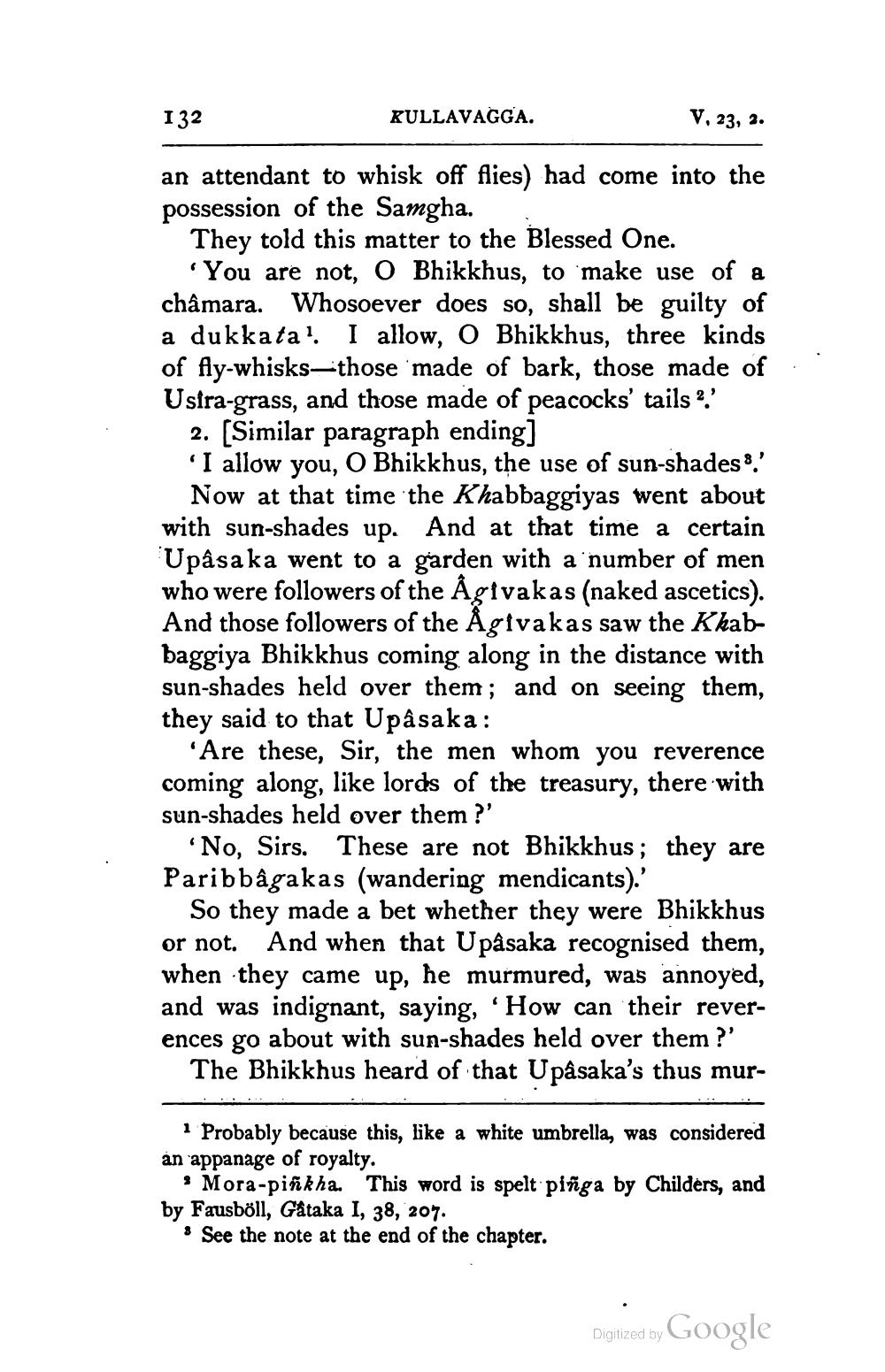________________
132
KULLAVAGGA.
V, 23, 2.
an attendant to whisk off flies) had come into the possession of the Samgha.
They told this matter to the Blessed One.
'You are not, O Bhikkhus, to make use of a châmara. Whosoever does so, shall be guilty of a dukkata'. I allow, O Bhikkhus, three kinds of fly-whisks-those made of bark, those made of Usira-grass, and those made of peacocks' tails".'
2. [Similar paragraph ending]
'I allow you, O Bhikkhus, the use of sun-shades".' Now at that time the Khabbaggiyas went about with sun-shades up. And at that time a certain Upasaka went to a garden with a number of men who were followers of the Agivakas (naked ascetics). And those followers of the Agivakas saw the Kkabbaggiya Bhikkhus coming along in the distance with sun-shades held over them; and on seeing them, they said to that Upâsaka:
'Are these, Sir, the men whom you reverence coming along, like lords of the treasury, there with sun-shades held over them?'
'No, Sirs. These are not Bhikkhus; they are Paribbâgakas (wandering mendicants).'
or not.
So they made a bet whether they were Bhikkhus And when that Upâsaka recognised them, when they came up, he murmured, was annoyed, and was indignant, saying, 'How can their reverences go about with sun-shades held over them?'
The Bhikkhus heard of that Upâsaka's thus mur
*
1 Probably because this, like a white umbrella, was considered an appanage of royalty.
Mora-pinkha. This word is spelt piñga by Childers, and by Fausböll, Gâtaka I, 38, 207.
See the note at the end of the chapter.
Digitized by Google




